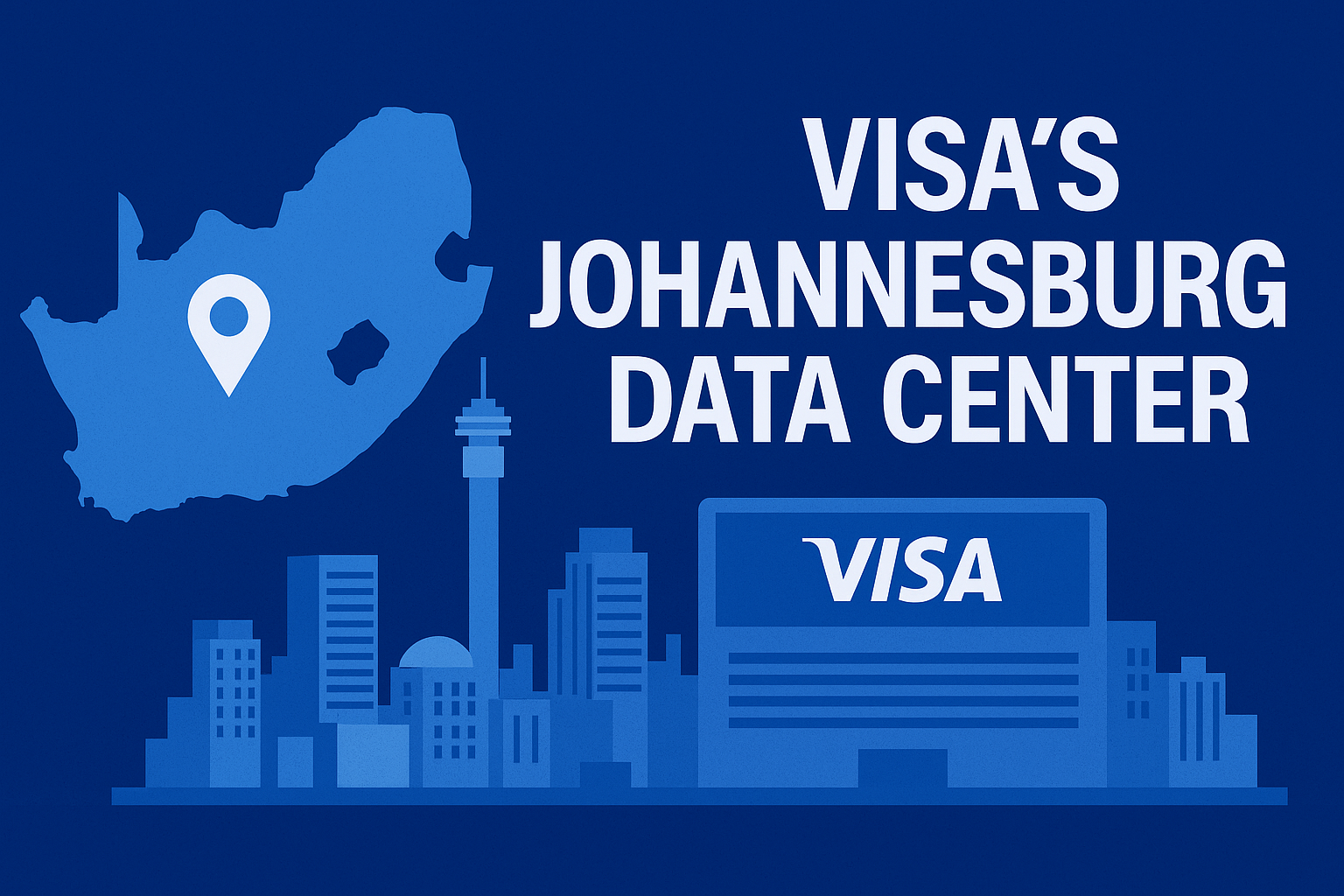Visa’s first African data centre launched in Johannesburg last month, promising to revolutionize digital payments across the continent. The move represents a massive infrastructure investment that could accelerate financial inclusion for millions of unbanked Africans. But it also creates a tempting new target for cybercriminals.
The timing feels both opportune and risky. South Africa’s digital payment volume has surged 340% since 2020, driven by mobile money adoption and fintech innovation. Yet the country also ranks among the world’s top targets for cybercrime, with financial services bearing the brunt of attacks.
What This Means for African Banking
Local data processing changes everything for banks and payment startups across the continent. Transaction speeds that previously took 3-5 seconds now complete in under 500 milliseconds. For mobile money services serving rural populations with spotty internet connections, that difference determines whether payments succeed or fail.
South African banks like First National (FNB) can now offer real-time cross-border payments to Nigeria, Kenya, and Ghana without routing transactions through European or American servers. This reduces costs dramatically while improving reliability for businesses trading across African markets.
The regulatory implications prove equally significant. Under South Africa’s Protection of Personal Information Act (POPIA), financial institutions face strict requirements for cross-border data transfers. Local processing eliminates much of this compliance burden, allowing banks to launch new services without navigating complex international data agreements.
Fintech startups benefit most dramatically. Companies like Paystack, Flutterwave, and local players such as Ozow can now access Visa’s infrastructure without the massive capital investments required for international data center relationships. This levels the playing field against established banks with deeper pockets.
The Economic Promise
Visa’s investment signals confidence in Africa’s digital transformation potential. The continent’s payment infrastructure has lagged behind mobile adoption rates, creating friction that limits e-commerce growth. Local data processing removes technical barriers that have constrained digital financial services.
Rural communities stand to gain enormously. Mobile money services that previously required multiple confirmation steps can now offer instant transfers, making digital payments viable for informal economy transactions. Street vendors in Lagos or farmers in rural Kenya can accept digital payments without worrying about transaction delays or failures.
The job creation impact extends beyond direct employment. Digital payment infrastructure enables new business models that didn’t previously exist in African markets. Gig economy platforms, e-commerce marketplaces, and subscription services all require reliable payment processing to scale effectively.
Cybersecurity Concerns Mount
Centralizing African payment data in Johannesburg creates an irresistible target for cybercriminals. The data centre processes transactions for dozens of African countries, making it a single point of failure that could disrupt commerce across the entire continent.
South Africa’s cybercrime statistics tell a sobering story. The country experienced over 230 million attempted cyberattacks in 2024, with financial services accounting for 40% of successful breaches. Ransomware groups specifically target payment processors because financial data commands premium prices on dark web markets.
The concentration risk extends beyond external threats. Insider access to centralized payment data creates opportunities for fraud that didn’t exist when transactions were distributed across multiple international systems. A single compromised employee could potentially access payment information for millions of users across Africa.
DDoS attacks pose particular concerns for centralized infrastructure. When payment systems go offline, economic activity grinds to halt. The 2021 Facebook outage that disrupted WhatsApp payments in Kenya demonstrated how digital payment dependencies can paralyze entire economies.
Global vs. Local Cyber Resilience
Visa operates one of the world’s most sophisticated cybersecurity operations, with threat detection systems that analyze billions of transactions for fraud patterns. The company invests over $500 million annually in cybersecurity, employing AI systems that can identify suspicious activity within milliseconds.
However, global cybersecurity expertise doesn’t automatically translate to local threat understanding. African cybercriminal groups employ tactics specifically designed for regional vulnerabilities. Social engineering attacks that exploit local languages, cultural references, and economic conditions require different defensive approaches than generic international threats.
Local African fintech companies often lack resources for enterprise-grade cybersecurity. Many startups focus development budgets on user acquisition rather than security infrastructure, creating vulnerabilities that could compromise the broader payment ecosystem.
The skills gap compounds these challenges. Africa faces a shortage of qualified cybersecurity professionals, with most talent concentrated in South Africa and Kenya. Smaller markets lack local expertise to properly secure their portions of the payment infrastructure.
Regulatory Frameworks Still Catching Up
African governments are scrambling to update cybersecurity regulations to match the pace of financial innovation. Most countries lack comprehensive data protection laws equivalent to GDPR or POPIA, creating regulatory gaps that cybercriminals exploit.
Cross-border incident response remains particularly problematic. When payment systems serving multiple countries get compromised, determining which jurisdiction leads the investigation creates delays that criminals use to cover their tracks.
The African Union’s proposed continental data governance framework aims to address these challenges, but implementation timelines stretch years into the future. Meanwhile, financial infrastructure development races ahead without adequate regulatory oversight.
So What Comes Next?
Visa’s Johannesburg data centre represents just the beginning of Africa’s digital payment transformation. Other global payment processors are planning similar investments, while local fintech companies scale operations to compete with international players.
The question isn’t whether Africa’s digital payment infrastructure will grow—it’s whether cybersecurity development can keep pace. The continent needs coordinated investment in cybersecurity education, regional threat intelligence sharing, and regulatory harmonization.
Success requires balancing innovation with security. African financial institutions must resist the temptation to prioritize speed and convenience over robust cybersecurity practices. The cost of getting this balance wrong could set back digital financial inclusion by decades. Visa’s investment proves that global payment companies see Africa’s potential. Whether that potential gets realized safely depends on how seriously all stakeholders take the cybersecurity challenges that come with rapid digital transformation.

Alex Rivers is a cybersecurity analyst and founder of The Hack Today. With over a decade of experience in ethical hacking and digital threat analysis, Alex writes to make breaking security news accessible and actionable to everyone. He has worked with fintech startups, government bodies, and security firms to expose critical vulnerabilities before they could be exploited. When he’s not dissecting zero-day exploits, he’s deep-diving into bug bounty reports or walking his dog.

